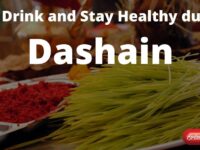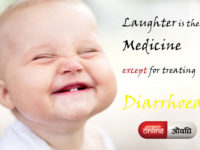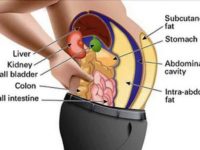No matter what age group the moms on your Mother’s Day list fall into, the gifts of health, fitness, and well-being are always the best ways to appreciate any mom on any day of the year – especially Mother’s Day. That’s why lets check out the ways of making our moms fit and healthy.
As the years pass by, many women find that the lifestyle that worked out in their 20s and 30s fails to achieve the same results in their 40s and 50s. As women reach their 50s (the average age of onset for menopause), they have to compensate for hormonal, cardiovascular and muscle changes that may have not been prevalent in their younger years.
Weight gain in the aging woman is common due to decreases in muscle mass, the accumulation of excess fat and a lower resting metabolic rate. Hormonal shifts can cause a range of symptoms and increase your overall risk for heart disease and stroke. Finally, absorption of certain nutrients may decrease due to a loss of stomach acid. Clearly, your diet at 50 should look a bit different from the previous years. The goal of the “50 and over” diet is to maintain your weight, keep your heart healthy, and above all, stay strong!
The following 8 dietary nutrition tips may help our moms live their 50s fabulously.
1. Boost calcium and vitamin D-That means three to four 8-ounce servings of low-fat dairy every day. If you are lactose-intolerant, eat hard cheese or yogurt; broccoli; and legumes.
If your doctor says you don’t get enough calcium in your diet, he may suggest you take supplements that have 1,000 to 1,500 milligrams of the nutrient.
2. Eat more fruits, veggies, whole grains, and legumes- These will give you plenty of disease-fighting antioxidants. Focus on variety every day, including vegetables with different colors. If diet doesnot fulfil the requirement, different supplements are available in form of pills.
3. Get enough fiber- You don’t have to look far. Some good sources are:Legumes, Whole wheat pasta, Whole-grain cereals and breads, Oatmeal,Brown rice, Popcorn, Fresh fruits and veggies
4. Take a daily multivitamin- It will fill any gaps in your nutrition picture. But make sure it’s tailored for your age group. When you’re over 50, you need less iron than younger women.
5. Eat lean proteins- Try foods such as skinless chicken, fatty fish like salmon (with omega-3 fats), and vegetable protein, including soy.
6. Enjoy a vegetarian meal a few times a week- Plant-based diets have lots of advantages. They’re low in calories but rich in vitamins, minerals, and antioxidants.
7. Cut down on salt- Too much salt is linked to high blood pressure. The recently-published 2015 Dietary Guidelines remind everyone to limit salt to 2,300 milligrams a day.
8. Choose fats wisely- Avoid trans and saturated fats. They’re often hidden in things like:Butter, Processed foods, Desserts, Doughnuts. “Good fats” can be found in olive oil, and some, but not all, vegetable oils like canola, as well as food like: Nuts and seeds, Avocado, Cold-water fish such as salmon and tuna
Sources:
http://www.healthinaging.org/resources/resource:tips-for-good-health-in-later-life-for-older-women/
http://www.doctoroz.com/blog/kristin-kirkpatrick-ms-rd-ld/5-nutrition-tips-staying-strong-and-healthy-after-50
http://www.webmd.com/women/guide/women-over-50-tips-for-good-nutrition
http://www.webmd.com/fitness-exercise/mothers-day-fitness-gifts














